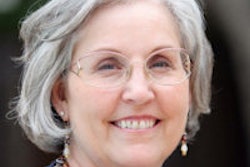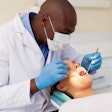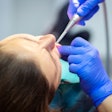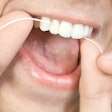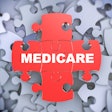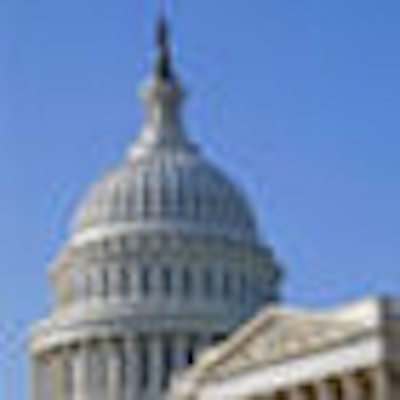
Oral health advocates from around the U.S. converged on Washington, DC, this week to work the halls of Congress, visiting lawmakers and pushing for funding for dental programs and policies.
Then, on the evening of September 12, they took stock at a reception in the Rayburn House Office building and marked milestones achieved.
Many at the event broke into applause when Joe Theissen, a senior vice president with the nonprofit Voices for America's Children, announced that the city council of Portland, OR, had just approved a measure to fluoridate the city's water.
The decision came in the wake of fierce opposition from fluoride critics and support from the city's mayor, Sam Adams, who spoke of fluoride as a solution to the dental "crisis" among Oregon children.
That crisis is nationwide, stressed Beth Truett, president and CEO of Oral Health America (OHA), the Chicago-based organization that sponsored the evening reception, along with Oral Healthcare Can't Wait, an initiative of the Dental Trade Alliance.
For Truett and the others at the reception who spend their days focused on finding ways to address oral health disparities in the U.S., the challenges are great.
"Our work has just begun," she acknowledged.
Important legislation
Roughly 100 million Americans currently lack dental insurance. Millions live in poor or rural communities without access to services. Though the Patient Protection and Affordable Care Act is expected to extend dental coverage to an additional 5.3 million children by 2014, many states lack the policies and programs to actually provide the care. And while the healthcare reform law ensures dental benefits for children as part of an "essential health benefits" package, adults are not guaranteed the same oral healthcare benefits. Neither does Medicare cover routine dental care for seniors.
Truett cited the results of a new public opinion survey commissioned by the OHA as more evidence of the resulting suffering.
"The statistics are numbing," she said. The survey found that Americans are more likely to take a pain killer for a toothache than to consult a dentist, and among those who did not regularly see a dentist, 73% gave financial considerations as the reason. It also found that Americans between the ages of 18 and 34 were the most likely to go without care, and that households earning less than $50,000 with children were less likely to consult a dentist in response to dental pain.
The survey, conducted as part of OHA's annual Fall for Smiles advocacy campaign, was supported by a number of dental companies and organizations.
The continuing impact of the economic downturn also has taken a toll on the oral health of American families, Truett said. But she closed her remarks with a quote from Winston Churchill: "Never let a good crisis go to waste."
The advocates recognized U.S. Sen. Robert Menendez (D-NJ) with an award for his efforts to broaden access to dental care among the young and fragile. Menendez was praised for his work on the successful effort to include mandatory dental benefits for the children of the working poor in the reauthorization of the Children's Health Insurance Program (CHIP). And he was lauded for his sponsorship of legislation entitled the Pro Bono Medically Recommended Dental Care Act (S 1878).
That legislation, also backed by the ADA, would provide grants to organizations coordinating pro bono, medically necessary dental care to patients with conditions such as diabetes, cancer, autoimmune disease, and kidney disease, or those needing heart or joint replacements or transplants.
Menendez was not present to receive the award, but in a letter read aloud at the reception, he said he hoped to see the bill's language incorporated into the reauthorization of the Older Americans Act, which could move through the Senate sometime later this year.
Special needs
Also during the evening, Gregory Folse, DDS, reflected upon lessons learned from his mobile practice in Louisiana, which brings care to elderly nursing home residents.
He asked each member of the audience to close his eyes and picture his own grandmother trying to cope with dental pain by pressing a warm washcloth to her swollen cheek.
"She has been this way for two weeks. She won't call you. She knows it costs $2,000 to get your teeth fixed," Dr. Folse said. "You can all open your eyes. The services are not covered. She cannot go to anyone. Our country has got to do better than that."
Dr. Folse has been advocating for years for the passage of a bill known as the Special Care Dentistry Act (HR 1606) that would amend title XIX of the Social Security Act to require states to provide oral health services to aged, blind, or disabled individuals under Medicaid.
Mary Foley, MPH, executive director of the Medicaid-CHIP State Dental Association, spoke of the importance of getting oral health services to the mothers and caregivers of young children in order to inhibit the spread of disease.
"We know that tooth decay is a bacterial infection," she said. "It is important that the primary caregivers of children have good oral health."
But the event ended on plaintive note, with Gary Price, CEO of the Dental Trade Alliance, acknowledging that many in Washington still fail to grasp the importance of supporting such work.
"There is plenty of money in this town," Price said.
Then, indicating the vast Oriental rug that covered the floor of Rayburn Room B339, he added, "We could probably pull back this carpet and find money. We're not talking loud enough."
There was a thoughtful pause.
Then someone in the back of the room shouted, "I'm organizing a sit-in in 15 minutes!"
People laughed. The hour was growing late. Everyone was tired. They finished their drinks and said their goodbyes, knowing there was more work to be done in the morning.




